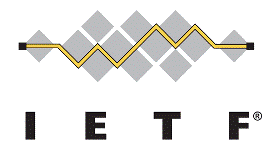SafeNetIoT
The UCL EEE SafeNetIoT Lab pioneers research into securing the Internet of Things (IoT) across critical environments. We identify and analyze vulnerabilities in IoT systems deployed in smart homes, healthcare facilities, and industrial infrastructures. Our work focuses on designing robust security protocols, privacy-preserving architectures, and real-time threat detection mechanisms tailored to constrained IoT ecosystems.

Recent Activity
13–15 Jan 2026 - CyberASAP Pathfinder Bootcamp – Birmingham
Mohammad Alhussan participated in the CyberASAP Pathfinder Bootcamp held in Birmingham from 13–15 January 2026. The bootcamp, delivered by Innovate UK Business Connect, focused on research commercialisation, startup formation, and early-stage venture development. The programme provided practical guidance, expert-led sessions, and valuable opportunities to engage with researchers, founders, and industry stakeholders.
5 Dec 2025 - IO Inspire pitch finale
PhD Candidate Mohammad Alhussan presented at UCL's IO Inspire pitch finale on the security of wearable devices, demonstrating the real commercial opportunities facilitated by his research on security deviciencies in BLE-enabled medical devices.
19 Nov 2025 – IETF Draft 'IoT DNS Security and Privacy Guidelines' Adopted by IOTOPS WG
Dr Anna Maria Mandalari and PhD student Andrew Losty along with colleagues Abhishek Kumar Mishra, Jim Mozley, and Mathieu Cunche have had their IETF draft 'IoT DNS Security and Privacy Guidelines' successfully adopted by the IOTOPS Working Group. This adoption is a key milestone. The draft will now undergo WG review for technical accuracy and consensus, followed by a Last Call, IESG review, and final approval by the RFC Editor before publication as a Best Current Practice (BCP) RFC.PhD.

People
Anna Maria Mandalari
Anna Maria Mandalari works as Assistant Professor at University College London (UCL). She is affiliated with the Electronic and Electrical Engineering Department, where she is the Director of the SafeNetIoT laboratory and the Director of the Internet Engineering/ Telecommunications MSc/ MRes Programme.
Aurelio Loris Canino
Aurelio is a visiting researcher from Mediterranea University of Reggio Calabria, working on real privacy risks in everyday web browsing.
Research
Hacking Health: Unveiling Vulnerabilities in Wireless Wearable Sensors
Mohammad Alhussan highlights the potential vulnerabilities in wearable medical devices that utilise Bluetooth Low Energy (BLE) for communication. He shows how these attacks can compromise not only the confidentiality and integrity of potentially sensitive medical data transmitted by wearable medical devices, but also patients’ privacy and safety as well as sensors’ reliability
An Investigation of Matter Smart Home Mechanisms to Mitigate Denial-of-Service (DoS) Attacks
Andrew Losty's research examines the relatively new open-source Smart Home automation protocol, Matter. This protocol aims to unify the Smart Home ecosystem, eliminating the need for multiple apps and competing architectures, and is supported by over 270 manufacturers, including major tech leaders such as Amazon, Google, Apple, and Samsung.
Enabling Lawful Interception in Environments Protected by IoT Safeguard
Aurelio Canino's work analyzes a novel challenge: the potential exploitation of IoT devices for covert lawful interceptions, circumventing existing IoT safeguards. In this paper, a system to clandestinely capture audio or video data from IoT devices without an IoT safeguard being able to detect it is defined.
Get in touch
Please do not hesitate to reach out to collaborate etc.